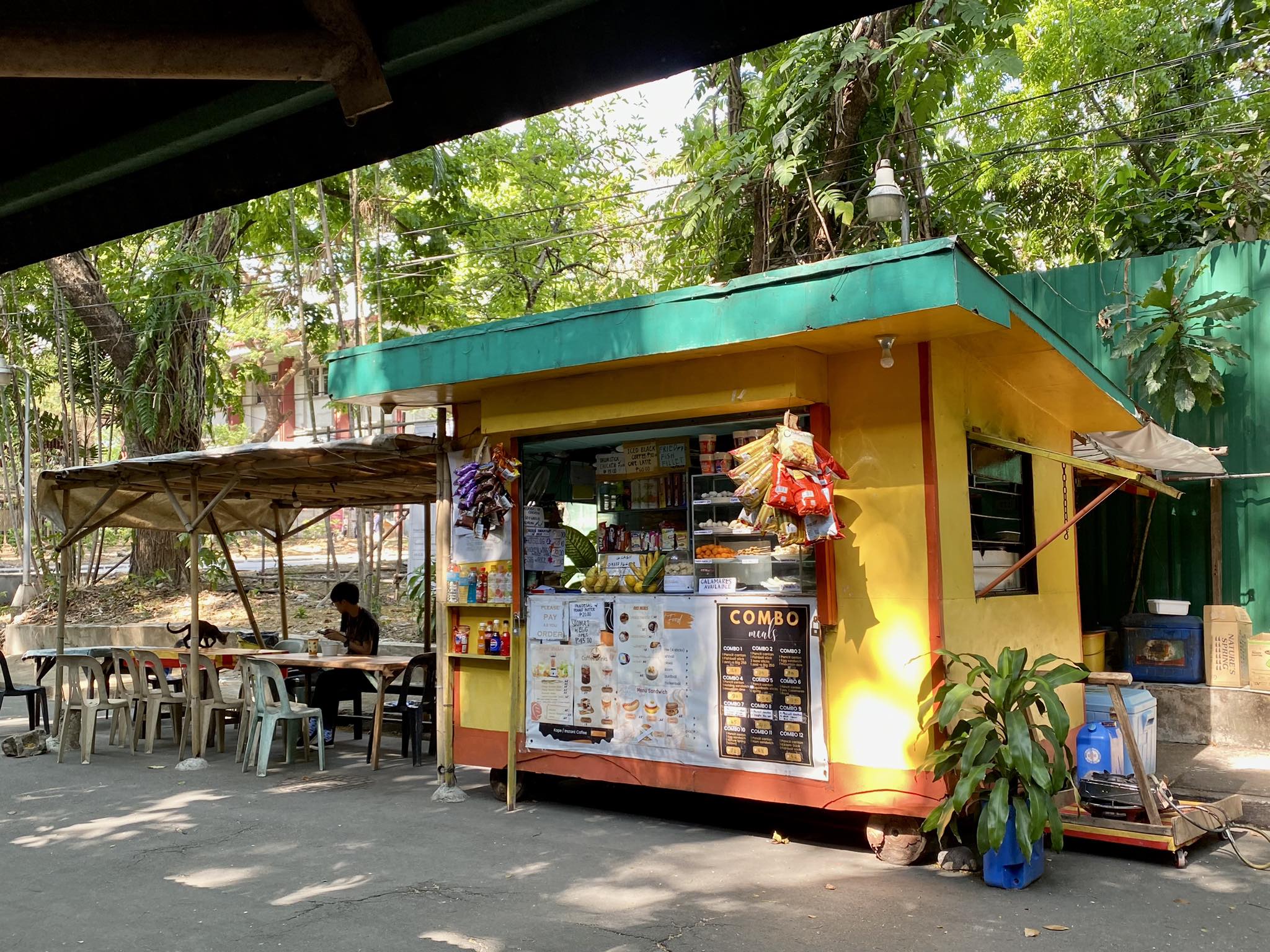
As scorching heat penetrates the entire country, the UP community mirrors this blazing fire to struggle against the violence of commercialization, in which service and quality education are being sacrificed at the altar of profit. The ubiquitous mantra “Para sa Bayan” should remind the UP administration to put first the immediate needs and welfare of its constituents rather than instigating anti-community and anti-poor policies in the interest of private companies and corporations.
In a recent post by the UP College of Arts and Letters narrating the aftermath of the fire that engulfed the Faculty Center in April 2016, they highlighted the disparity between the construction and renovation of commercial buildings inside the campus within the last 8 years as compared to the currently unfinished Faculty Center and the New CAL Building. They write, “If it didn’t take UP 8 years to build and complete these commercial and aesthetic infrastructures, then it shouldn’t take more than 8 years to construct a new building for one of its largest colleges, especially given the many challenges we continue to face from this lack of space. If other kinds of construction projects can be accomplished, then surely the construction of working spaces for the faculty can be accomplished as well.” This statement magnifies the pressing concern of the need for academic spaces within the university that is being obscured by the continuous construction of commercial buildings such as the GyudFood Hub and the upcoming DiliMall. Such an onslaught of privatization and commercialization displaces the faculties, students, maninindas, and the whole UP community on the sidelines, further erasing them from the picture of this so-called development.
Developments Beyond Profit
While the previously mentioned CAL post already sheds light on the deteriorating state of UP’s academic spaces, one can still find its other symptoms in non-conducive learning environments within the campus. In the Palma Hall, for instance, most of the students complain about how the rising heat index proves to be unbearable inside the classrooms due to the lack of retrofitting of UPD’s buildings and how the facilities are not maintained well; some electric fans are not functioning, wooden desks and chairs are creaking, and walls made of wood are already destroyed and peeling.
Moreover, Livelee, a BS Economics student, pointed out how the absence of proper ventilation in the Institute of Mathematics makes the installation of electric fans almost futile amidst the sweltering heat. Additionally, in the Fine Arts building, BA Journalism student Yana reiterates the scarcity of conducive learning spaces. She notes that they still use monoblock chairs instead of ergonomic seats. In our PE class, on the other hand, we are forced to practice under the heat of the sun on the open grounds of the Student Union Building because of inadequate spaces.
The accounts of these students serve as a testament to how there is an immediate need for the considerable refinement of our learning environments. If it is the rhetoric of development that permits these commercial structures to propagate, then I contend that there are more areas within the academic premises that need further enhancement. Thus, it is imperative that the allocation of budgets be in line with the development of our learning facilities and inclusive spaces, not towards profit-scheming motives like the commercialization of DiliMall.
The Price of Commercialization
When rampant commercialization of campus land towers over the interests of the community, the gap between the common people and the ruling class aggravates. In accordance with the UP Master Development Plan (MDP), the university administration is encouraged to “explore the entrepreneurial opportunities and activities that exist on campus” to increase financial resources besides government endowment. Which in and of itself is a manifestation of the growing budget cuts that are faced by State Universities and Colleges (SUCs) each year. For instance, a P6,155 billion budget cut in funding for 36 SUCs is proposed for the year 2024. Hence, SUCs resort to engaging in market relations and charging more fees to the students, as explained by Kabataan party-list Rep. Raoul Manuel. Nevertheless, this still does not discount how the Jimenez administration’s priorities in UP’s 2024 budget are skewed towards an overemphasis on grandiose infrastructure (with an allocation that climbed by 80% compared to 2023) and not on other pressing matters like utility operations and maintenance of facilities that have incurred a 1.3 billion cut.
However, this seems to be a recurring theme among his predecessors as the rise of these commercial establishments has been plaguing the university for quite some time now. Several establishments have been inaugurated: the UP TechnoHub (opened in 2008), the UP Town Center (2013) at the expense of the former location of the UP Integrated School, the recent Gyud Food Hub (2019), and the upcoming privately operated DiliMall. Subsequently, as the university administration became inclined to commercialize assets such as land areas to generate income, the livelihood of maninindas as well as the UP community itself was trampled.
Ate Nene, a manininda for over twenty years, says that “Kung ang mga jeepney at UP ikot ay pinaphase-out na, kaming mga manininda ‘yung susunod na nilang i-phaphase-out.” She laments how the UP administration does not prioritize them in favor of “big-time” companies.
In the same vein, Manong Adolfo, a member of the Samahan ng Manininda sa UP who has also been a vendor for 20 years, narrates how they are only earning enough to sustain daily expenses. However, he noticed a significant change in their income as commercial infrastructure like the UP Town Center and Gyud Food competed with their demand. He pleads with the administration to heed the concerns of the Maninindas, as he firmly believes that the university is not a place for commercialized buildings. He delineates their role in service to the students by providing them with accessible and affordable drinks and meals.
More profoundly, the UP Not For Sale Network, which comprises the Samahan ng mga Manininda sa UP, UP Shopping Center Stallholders Association Incorporated, University Student Council, All UP Workers’ Alliance, and other formations, opposes the commercialization of DiliMall and our campus to prioritize our maninindas and other UP stakeholders. This concretizes the need for the UP administration to rank service for the community as its utmost priority, not the accumulation of profit. Subsequently, budget cuts in State University Colleges should not be condoned. Education should not be embroiled in market relations, as it dissolves the essence of learning and the common goal of serving the masses.
Quality Education is a Right
Being the premiere university in the Philippines, UP should be at the forefront of championing the right to quality education, for it is within their mandate to democratize learning. Education should not be for sale nor denied. It should be within the reach of every person, most especially those who are at the seams of society.
Therefore, we should also condemn the December 2023 CHED memorandum that directs all State Universities and Colleges to discontinue their Senior Highschool programs and the issuance of SHS voucher subsidies. This memorandum also announced the discontinuation of the Government Assistance to Students and Teachers in Private Education Act (GASTPE). With over 17,000 Grade 11 students currently enrolled in SUCs, the ratification of this memorandum will only further deteriorate the ongoing educational crisis. Additionally, it will also have an immense impact on the livelihood of the teachers and other faculty personnel.
It is time for the state to put a halt to its penchant for enacting neoliberal policies that endanger the quality and access to education in the name of profit. The University of the Philippines should not monopolize the quality of learning that produces excellence, for it should be decentralized and relished in all universities—each with its own conducive learning environment and sustainable funding that foster a nationalist, scientific, and mass-oriented education.
As Iskolars ng Bayan, it is within our right to assert our spaces for knowledge and tied with these are the hopes of those whom we shall always serve: the masses.







Your articles are extremely helpful to me. Please provide more information! http://www.ifashionstyles.com